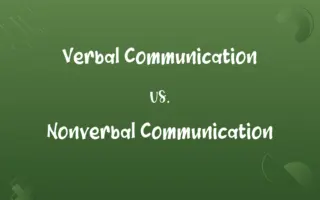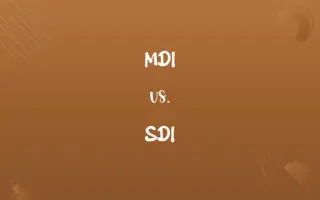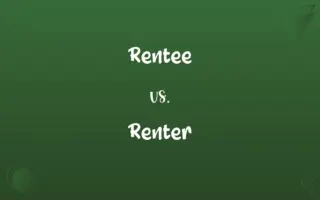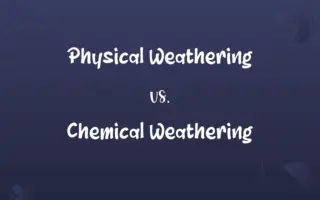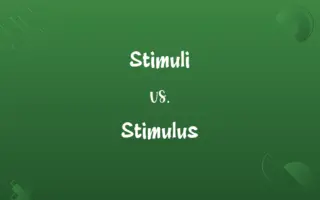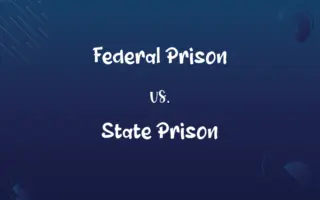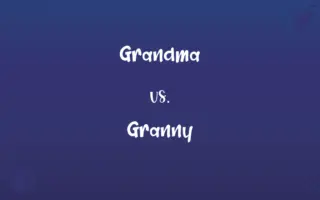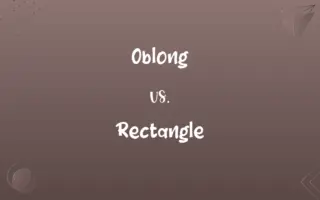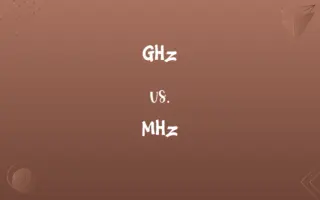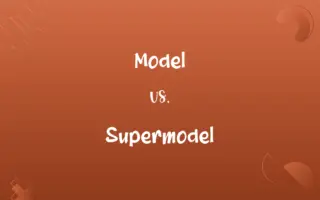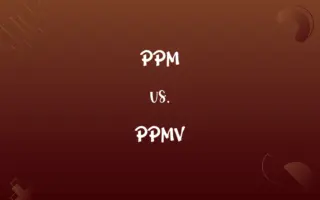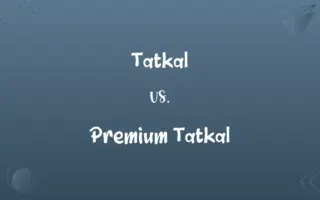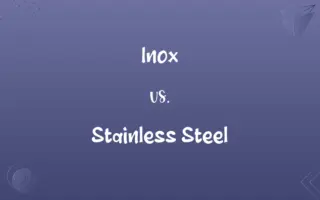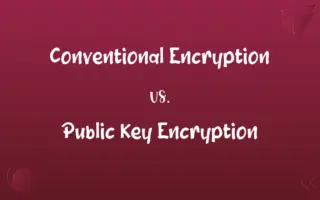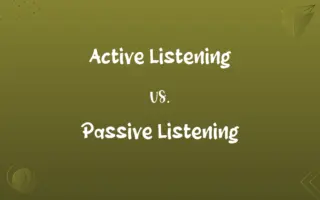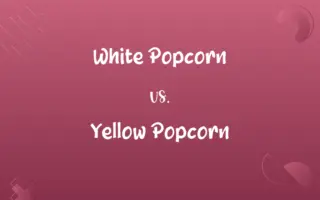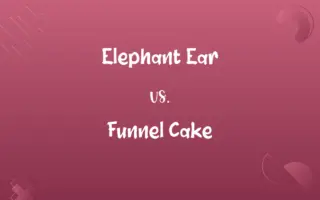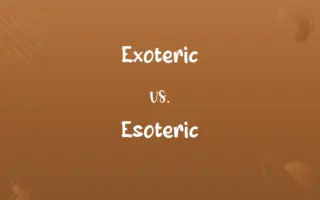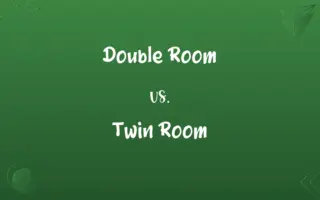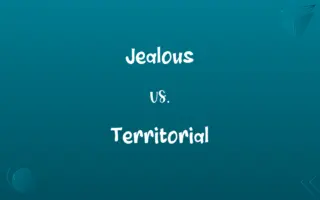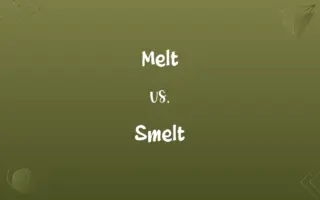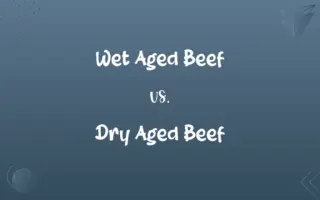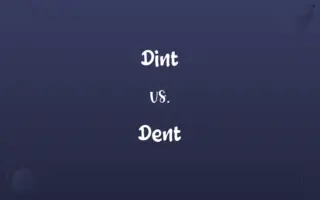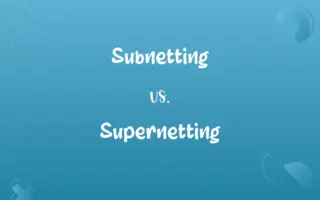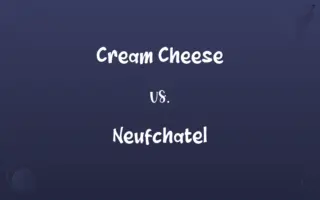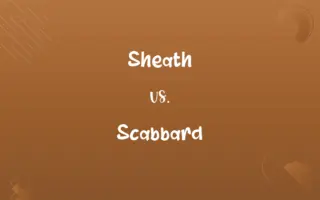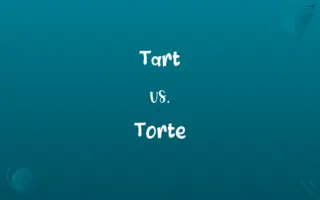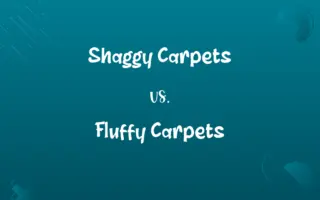Mechanical Weathering vs. Chemical Weathering: Know the Difference

By Shumaila Saeed || Published on February 13, 2024
Mechanical weathering breaks rocks physically without changing their composition, while chemical weathering alters the chemical structure of rocks.
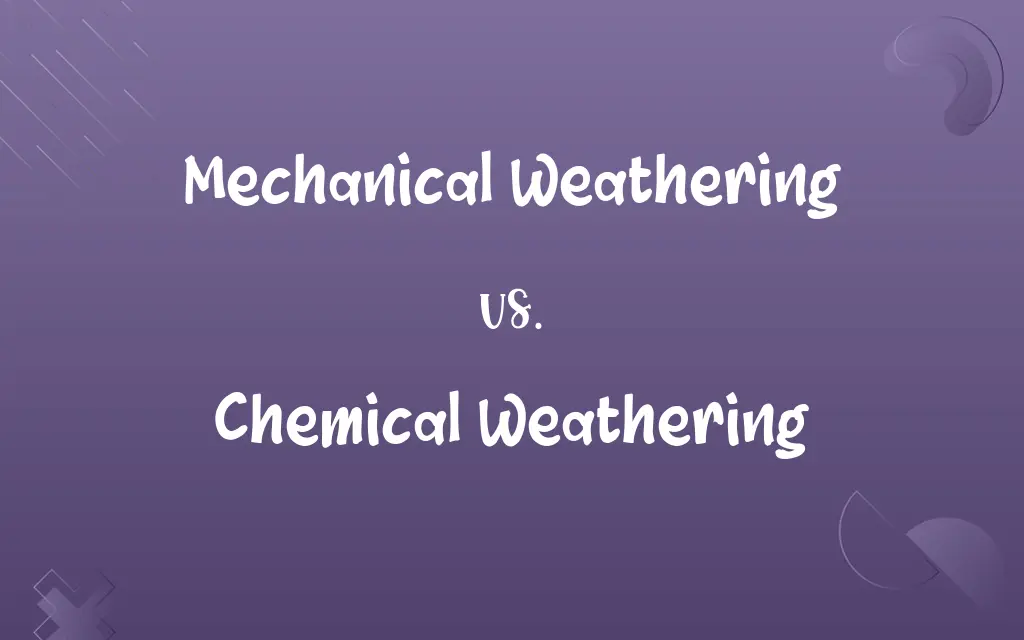
Key Differences
Mechanical Weathering involves the physical breakdown of rocks into smaller pieces without altering their chemical composition. Processes like frost wedging and thermal expansion contribute to this type of weathering. Chemical Weathering, in contrast, involves chemical reactions that change the mineral composition of rocks, such as oxidation and hydrolysis.
Shumaila Saeed
Feb 13, 2024
Mechanical Weathering is often caused by physical forces like temperature changes, water, ice, and pressure. An example is the freeze-thaw cycle where water expands in cracks, breaking the rock apart. Chemical Weathering occurs due to chemical reactions, often involving water and gases in the atmosphere, leading to new minerals and clay formation.
Shumaila Saeed
Feb 13, 2024
Mechanical Weathering can be accelerated by factors like climate, specifically in areas with wide temperature fluctuations. Chemical Weathering is more prevalent in warmer, moist climates where chemical reactions occur faster.
Shumaila Saeed
Feb 13, 2024
In Mechanical Weathering, the composition of the original rock remains unchanged, and it primarily produces smaller fragments of the same material. Chemical Weathering changes the rock's composition, often weakening it and making it more susceptible to other forms of erosion.
Shumaila Saeed
Feb 13, 2024
Mechanical Weathering is critical in high altitudes and latitudes, where physical forces dominate. Chemical Weathering plays a more significant role in shaping landscapes in temperate and tropical regions, due to higher moisture and temperature levels.
Shumaila Saeed
Feb 13, 2024
ADVERTISEMENT
Comparison Chart
Climate Influence
More effective in fluctuating temperatures
More effective in warm, moist climates
Shumaila Saeed
Feb 13, 2024
Environmental Impact
Creates rock debris and slopes
Leads to soil formation, landscape changes
Shumaila Saeed
Feb 13, 2024
ADVERTISEMENT
Mechanical Weathering and Chemical Weathering Definitions
Mechanical Weathering
Exfoliation
Exfoliation, a type of mechanical weathering, peels off rock layers.
Shumaila Saeed
Jan 17, 2024
Chemical Weathering
Carbonation
Carbonation is chemical weathering involving carbonic acid.
Shumaila Saeed
Jan 17, 2024
Mechanical Weathering
Frost Wedging
Frost wedging is a common form of mechanical weathering in cold climates.
Shumaila Saeed
Jan 17, 2024
Chemical Weathering
Acid Rain
Acid rain, a chemical weathering agent, erodes limestone.
Shumaila Saeed
Jan 17, 2024
Mechanical Weathering
Thermal Expansion
Rocks expand and contract in thermal expansion, a mechanical weathering process.
Shumaila Saeed
Jan 17, 2024
ADVERTISEMENT
Chemical Weathering
Mineral Change
Chemical weathering alters the mineral composition of rocks.
Shumaila Saeed
Jan 17, 2024
Mechanical Weathering
Abrasion
Mechanical weathering includes abrasion, where particles grind against rock surfaces.
Shumaila Saeed
Jan 17, 2024
Chemical Weathering
Hydrolysis
Hydrolysis in chemical weathering breaks down minerals with water.
Shumaila Saeed
Jan 17, 2024
Mechanical Weathering
Physical Breakdown
Mechanical weathering breaks rocks into smaller pieces.
Shumaila Saeed
Jan 17, 2024
Chemical Weathering
Oxidation
Oxidation, a form of chemical weathering, rusts iron in rocks.
Shumaila Saeed
Jan 17, 2024
Repeatedly Asked Queries
What is Chemical Weathering?
Chemical weathering involves the chemical alteration of rock minerals, leading to the breakdown and formation of new minerals.
Shumaila Saeed
Feb 13, 2024
How does Mechanical Weathering occur?
It occurs through physical processes like freeze-thaw cycles, abrasion, and pressure release.
Shumaila Saeed
Feb 13, 2024
What causes Chemical Weathering?
It's caused by chemical reactions, often involving water, oxygen, carbon dioxide, and acidic substances.
Shumaila Saeed
Feb 13, 2024
Can Mechanical Weathering affect Chemical Weathering?
Yes, mechanical weathering can increase the surface area exposed to chemical agents, accelerating chemical weathering.
Shumaila Saeed
Feb 13, 2024
Does temperature influence Mechanical Weathering?
Yes, temperature changes, especially freezing and thawing, play a significant role in mechanical weathering.
Shumaila Saeed
Feb 13, 2024
What are examples of Mechanical Weathering?
Frost wedging, exfoliation, and abrasion are common examples.
Shumaila Saeed
Feb 13, 2024
How does climate affect Chemical Weathering?
Warm, wet climates accelerate chemical weathering due to increased chemical reactions.
Shumaila Saeed
Feb 13, 2024
What types of rocks are most susceptible to Mechanical Weathering?
Rocks with existing cracks and joints are more vulnerable to mechanical weathering.
Shumaila Saeed
Feb 13, 2024
Is Chemical Weathering a fast process?
It's generally slower than mechanical weathering, as it depends on chemical reaction rates.
Shumaila Saeed
Feb 13, 2024
What are examples of Chemical Weathering?
Examples include oxidation, hydrolysis, and carbonation.
Shumaila Saeed
Feb 13, 2024
What is Mechanical Weathering?
Mechanical weathering is the physical breakdown of rocks into smaller pieces without changing their chemical composition.
Shumaila Saeed
Feb 13, 2024
What is the role of Chemical Weathering in soil formation?
It breaks down rocks into smaller, altered mineral components, essential for soil formation.
Shumaila Saeed
Feb 13, 2024
How does vegetation influence Mechanical Weathering?
Plant roots can grow into rock cracks, exerting pressure and causing physical breakdown.
Shumaila Saeed
Feb 13, 2024
Which is more significant for shaping landscapes?
Both play crucial roles, but chemical weathering often leads to more profound and lasting changes in rock composition and landscapes.
Shumaila Saeed
Feb 13, 2024
What is the impact of Mechanical Weathering on landscapes?
It leads to the fragmentation of rocks, forming features like talus slopes and sand.
Shumaila Saeed
Feb 13, 2024
Can Mechanical Weathering occur without water?
Yes, processes like thermal expansion and abrasion can occur in dry conditions.
Shumaila Saeed
Feb 13, 2024
Which rocks are more prone to Chemical Weathering?
Rocks containing minerals that react easily with water, acids, or oxygen, like limestone, are more prone to chemical weathering.
Shumaila Saeed
Feb 13, 2024
Does Chemical Weathering alter the rock's appearance?
Yes, it can change the color, texture, and composition of the rock.
Shumaila Saeed
Feb 13, 2024
Can pollution impact Chemical Weathering?
Yes, pollutants like acid rain can enhance chemical weathering rates.
Shumaila Saeed
Feb 13, 2024
How are Mechanical and Chemical Weathering interconnected?
Mechanical weathering increases the surface area for chemical reactions, while chemical weathering can weaken rocks, making them more susceptible to physical breakage.
Shumaila Saeed
Feb 13, 2024
Share this page
Link for your blog / website
HTML
Link to share via messenger
About Author
Written by
Shumaila SaeedShumaila Saeed, an expert content creator with 6 years of experience, specializes in distilling complex topics into easily digestible comparisons, shining a light on the nuances that both inform and educate readers with clarity and accuracy.



